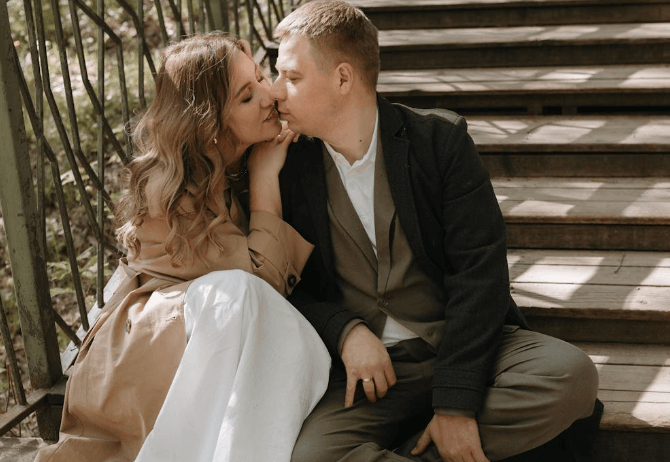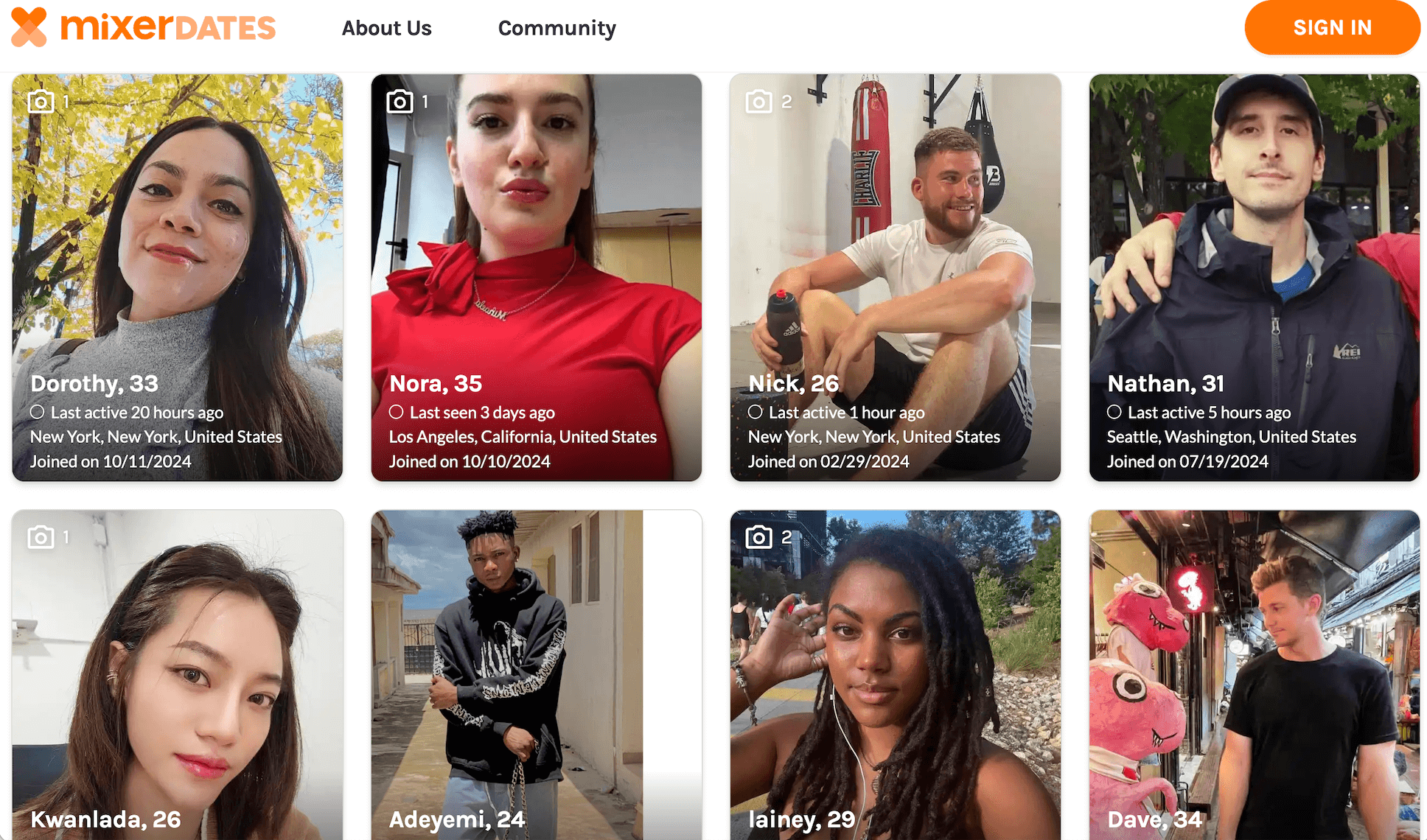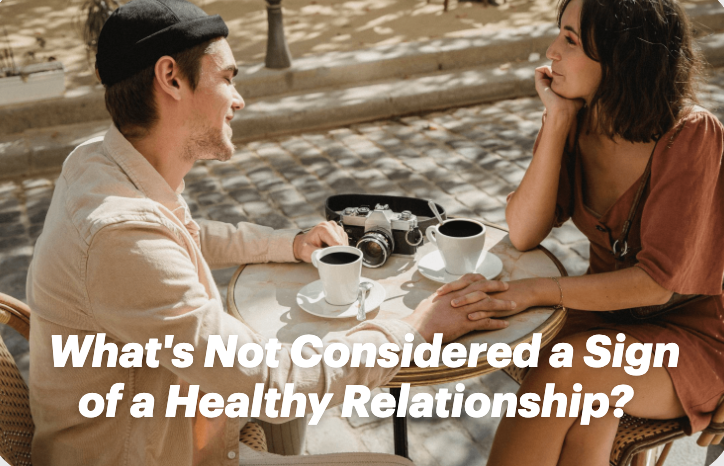Have you ever questioned if you’re in the right relationship? Maybe you’ve felt something was off but weren’t sure if it was you, or if things had just changed over time. It's confusing, right? Especially when you want love to feel effortless and easy. Sometimes, we hold onto relationships because we’re afraid of being alone, or we don’t want to face the uncertainty that comes with change.
The truth is, not every relationship is healthy, even when it feels good on the surface. There are signs of unhealthiness that are easy to overlook, especially when we’re emotionally invested. But identifying what’s not considered a sign of a healthy relationship can help us make better decisions and find love that really supports us. Whether you're looking for a fresh start or simply seeking a deeper connection, MixerDates can help guide you toward a fulfilling relationship based on mutual respect, trust, and emotional safety.

Table of Contents
1. What’s Not Considered a Sign of a Healthy Relationship?
o 1.1 Constant Drama or Unnecessary Conflict
o 1.2 Lack of Communication or Avoiding Tough Conversations
o 1.3 Constantly Sacrificing Yourself
o 1.4 Feeling Controlled or Overly Monitored
o 1.5 Constant Negativity or Criticism
o 1.6 Feeling Alone, Even When You're Together
2. What Does a Healthy Relationship Really Look Like?
3. Is It Possible to Fix an Unhealthy Relationship?
4. Moving Forward: Finding Healthy, Fulfilling Relationships
5. Conclusion: A Reminder to Prioritize Yourself
1. What’s Not Considered a Sign of a Healthy Relationship?
1.1 Constant Drama or Unnecessary Conflict
Healthy relationships are grounded in peace and understanding. If you’re constantly caught up in arguments, drama, or misunderstandings, that’s not a good sign. Healthy relationships thrive on mutual respect, not constant conflict. Yes, disagreements happen, but they should be resolved calmly and constructively.
If you’re always feeling like you’re walking on eggshells, constantly bracing for the next fight, that’s a major red flag.
Example: “Have you ever noticed that no matter how small the issue is, it somehow escalates into a huge fight? That’s not healthy. Healthy couples can disagree, but they do it respectfully and with a focus on finding solutions.”
1.2 Lack of Communication or Avoiding Tough Conversations
Communication is the cornerstone of any healthy relationship. When communication breaks down, it’s easy to drift apart. Avoiding difficult conversations, bottling up feelings, or giving each other the silent treatment only creates emotional distance.
Example: “Maybe you’re both avoiding that big conversation about your future or those feelings that are starting to bubble up. Ignoring the hard stuff doesn’t make it go away—it just makes it worse. Healthy relationships encourage open, honest communication, even when the topics are tough.”
1.3 Constantly Sacrificing Yourself
In any relationship, there will be sacrifices, but when one person is constantly putting their own needs on the back burner, it creates an unhealthy imbalance. A healthy relationship should be a partnership, where both people give and take.
Example: “If you find yourself consistently abandoning your own desires, hobbies, or personal boundaries just to keep the peace, that’s not a healthy dynamic. Both partners should be able to thrive individually while still supporting each other.”

1.4 Feeling Controlled or Overly Monitored
A healthy relationship involves mutual trust and respect. If you’re feeling controlled, constantly monitored, or unable to make decisions without your partner’s approval, that’s a sign of an unhealthy relationship. Love should never feel like a prison.
Example: “If you’re checking in on each other every hour or feeling like your partner needs to know where you are at all times, that’s not love—it’s control. Healthy relationships encourage independence while fostering trust.”
1.5 Constant Negativity or Criticism
We all need constructive criticism from time to time, but when your partner’s words are constantly negative or critical, it can seriously erode your self-esteem. Healthy relationships make you feel supported, uplifted, and valued for who you are.
Example: “Are you constantly hearing about what’s wrong with you, or do you feel like you can never do anything right? That’s not healthy. Relationships should be about lifting each other up, not tearing each other down.”
1.6 Feeling Alone, Even When You're Together
Have you ever felt alone in a relationship? Maybe you’re physically together but emotionally distant. A sign of a healthy relationship is emotional intimacy—feeling connected and supported by your partner, even during tough times.
Example: “There’s nothing worse than feeling isolated while you’re in a relationship. If your emotional needs are consistently unmet, or if you’re not able to share your feelings without being dismissed, it’s time to reassess things.”

2. What Does a Healthy Relationship Really Look Like?
Before diving into what’s unhealthy, let’s first take a moment to define what a healthy relationship should look like. Healthy relationships aren’t perfect, but they are based on respect, trust, and open communication. You should feel safe emotionally, physically, and mentally, and your partner should always have your best interests in mind.
In a healthy relationship, both partners grow together but still maintain their individual identities. There’s mutual support and understanding, and disagreements are handled with care and empathy, not with anger or control.
Self-Reflection Questions to Ask Yourself:
• Do I feel respected by my partner?
Respect means more than just kind words—it’s about how your partner treats you every day. Do they listen to you, value your opinions, and respect your boundaries? Feeling respected is essential for emotional safety and connection in a relationship.
• Do we communicate openly about our feelings and concerns?
Healthy relationships thrive on open communication. Do you feel comfortable sharing your thoughts and feelings without fear of judgment or defensiveness? If communication feels one-sided or stifled, it could be a sign that the relationship needs work.
• Can I be myself without fear of judgment or rejection?
A strong relationship allows both partners to be authentic. Do you feel free to express yourself without trying to meet your partner’s expectations or fearing rejection? Being accepted for who you are is key to a healthy dynamic.
• Are we both invested in making each other happy and growing together?
Healthy relationships involve mutual effort. Are both of you equally committed to each other’s happiness and personal growth? If one partner is doing all the work, it may lead to an imbalance that needs attention.
These questions can help you assess whether your relationship is truly healthy or whether it might be time to make changes or move on.

3. Is It Possible to Fix an Unhealthy Relationship?
So, can an unhealthy relationship be fixed? The answer depends on both partners. Relationships require mutual effort, and for any change to happen, both people need to be committed to improving things. If one partner refuses to acknowledge the problems or is unwilling to make changes, it can be very difficult to turn things around.
However, if both partners are open to working through issues—whether that means improving communication, attending therapy, or setting healthier boundaries—there’s a chance for growth and healing. Relationships don’t always stay the same; they evolve, and with dedication from both sides, even unhealthy patterns can be transformed into something healthier. But remember, for any relationship to succeed, both partners need to actively engage in the work needed to make it better. If you find that you’re the only one trying, it might be time to reconsider if this relationship is serving your best interests. Your happiness and emotional well-being should never be compromised.
4. Moving Forward: Finding Healthy, Fulfilling Relationships
No matter where you are in your relationship journey, remember—you deserve love that makes you feel valued, seen, and respected. A healthy relationship should make you feel happy and supported, not drained or uncertain.
If you’re ready to move forward and attract the love you deserve, consider these important points:
• You Deserve Love That Makes You Feel Valued
A healthy relationship should leave you feeling appreciated, respected, and truly seen by your partner. It should bring joy, comfort, and mutual support, not confusion or stress.
• Take Time to Reflect on Your Past Relationships
Look back at what worked and what didn’t in your past relationships.Reflect on the emotional patterns you experienced, and use these insights to avoid repeating unhealthy cycles.
• Focus on What You Truly Want in a Relationship
Be clear about your needs and desires—don't settle for less.Understand that a healthy relationship is about mutual respect, emotional safety, trust, and shared values.
• Healthy Relationships Require Effort From Both Partners
Relationships are a two-way street: both partners need to be willing to put in the effort to build and nurture the connection. Communication, honesty, and setting boundaries are key factors in creating a fulfilling relationship.
• Prioritize Yourself in the Process
It’s okay to take time for self-care and personal growth before jumping into a new relationship.Focus on becoming the best version of yourself—this will naturally attract the right person.
• Embrace New Opportunities for Connection
If you’re ready to meet like-minded individuals who share your values and relationship goals, now is the perfect time to take action.There are plenty of opportunities for growth, and platforms like MixerDates can help you connect with others who value healthy, meaningful relationships.
• Find a Partner Who Supports Your Growth
The right partner will encourage you to be your best self, challenge you to grow, and help you overcome obstacles. Look for someone who is genuinely invested in making the relationship a positive experience for both of you.
If you’re ready to take control of your love life and seek out connections that are genuine and fulfilling, there’s no better time than now. MixerDates is here to help you connect with like-minded people who value the same things you do—mutual respect, trust, and a healthy emotional bond.

5. Conclusion: A Reminder to Prioritize Yourself
Whether you’re reflecting on your current relationship or considering a new beginning, always remember: you are worthy of a healthy, loving relationship. Don’t settle for less than you deserve. Take the time to invest in yourself, your happiness, and your emotional well-being.
If you’re ready to start a new chapter and connect with people who value the same things, don’t hesitate—join MixerDates today. Take the first step towards finding love that lifts you up, not drags you down. You deserve nothing less.



